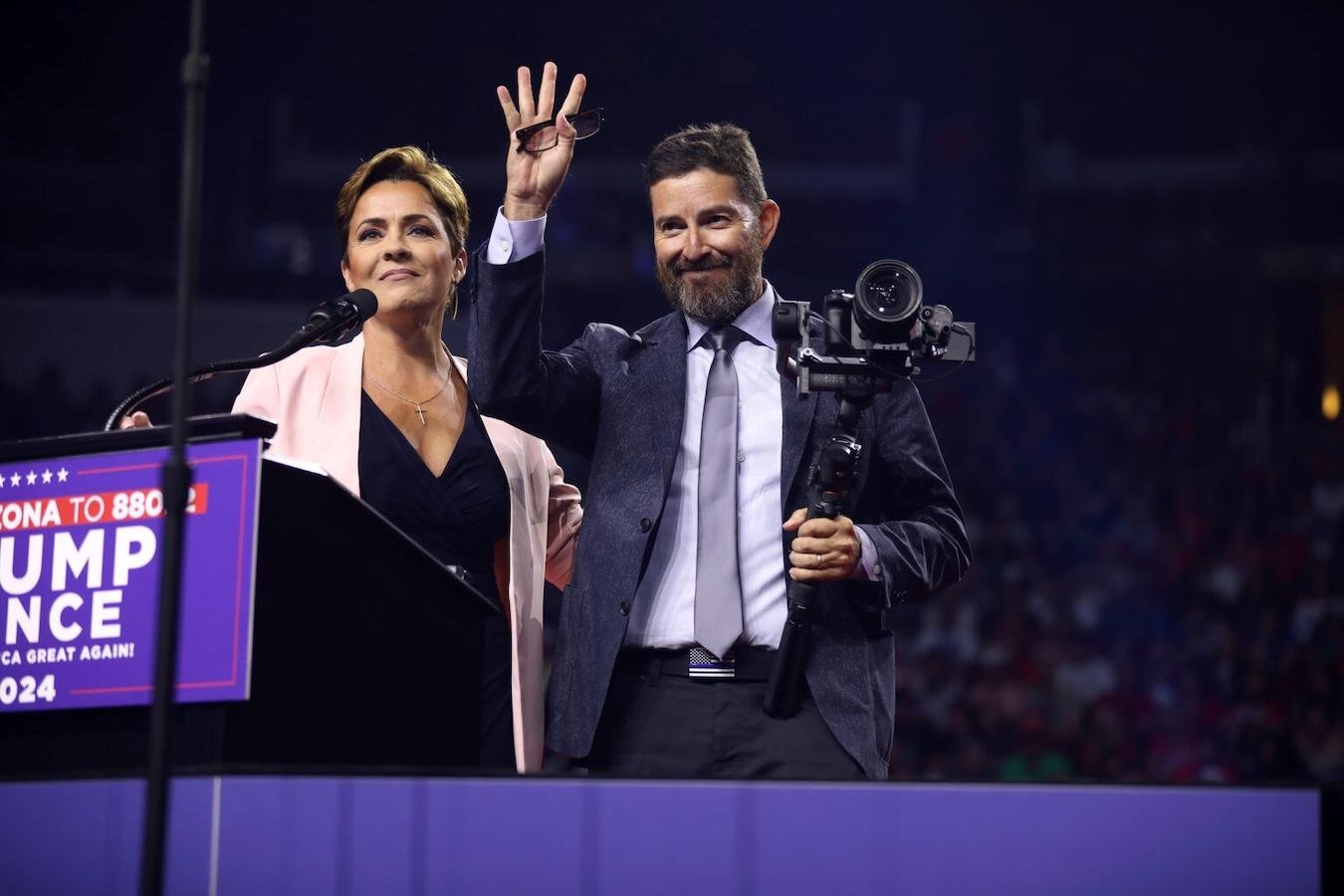arizona
Kari Lake Nears Senate Concession While Husband Seeks to Toss Defamation Lawsuit

Kari Lake, a prominent figure in Arizona’s political landscape and known for her election denial stance, appears to be moving on after losing the recent U.S. Senate race to Democrat Ruben Gallego. This comes despite her ongoing struggle to accept the outcome of her 2022 gubernatorial defeat.
Just two days after the Associated Press declared Gallego the winner, Lake shared a video on X, formerly Twitter, indicating the conclusion of her Senate campaign. “Truth will never stop mattering to me,” she stated, emphasizing her commitment to her followers and the state she cherishes.
While she declared an end to her campaign, Lake avoided a straightforward concession. Gallego’s campaign noted that Lake had not reached out to him regarding any formal acknowledgment of her loss. On the same day the election was called in Gallego’s favor, Lake’s husband filed a motion seeking to dismiss a defamation lawsuit resulting from her refusal to accept the results of the previous election.
The lawsuit, initiated by Maricopa County Recorder Stephen Richer, claims defamation against Lake, her husband, and their campaign, as well as the Save Arizona Fund, a nonprofit she controls. Richer alleges that Lake made unfounded accusations of election sabotage related to her gubernatorial loss in 2022.
Lake has persistently claimed that Richer was responsible for counting 300,000 “illegal” ballots in Maricopa County. Despite numerous legal challenges, she has not succeeded in her attempts to overturn the election results. A default in March legally acknowledged that her claims about Richer were unfounded, while she continued to promote the contrary in public statements.
Richer’s lawsuit seeks compensation for costs incurred due to security upgrades prompted by threats stemming from Lake’s accusations. He also requests punitive damages and compensation for damage to his reputation and emotional distress. Legal discussions about the extent of Richer’s damages are ongoing, with both parties facing challenges in gathering evidence.
Lake’s attorneys motioned for dismissal, asserting that Richer had not adequately demonstrated damage to his reputation. They argued that his standing with Republicans had deteriorated prior to his public disputes with Lake. The motion also contended that Richer’s history of being targeted for his election integrity stance predates Lake’s accusations.
Calls for evidence disclosure have been contentious, with Lake’s camp arguing that some relevant emails were lost when her gubernatorial campaign ceased operations. However, claims that these emails were deleted before the lawsuit’s initiation have been questioned based on the timeline of her campaign’s financial activities.
Richer’s decision to deactivate his X account, cited as a destruction of evidence, has also been raised by Lake’s side. Legal experts are wary of predicting outcomes in defamation cases, noting that they can hinge on various factors, including compliance with discovery requests.
Lake must submit details about the allegedly purged emails by November 22. A pretrial conference is scheduled for February 2025, leading up to a jury trial aimed at determining the damages Richer may be owed.

















